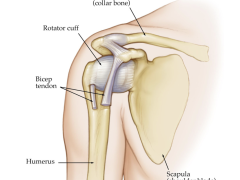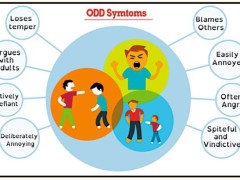express [ikˈspres] n. 快车;adj. 高速的
【搭】express train 快车 express lane 快车道
* * *
A: What's the surcharge on this express parcel?
B: Twenty yuan, please.
A:这个快邮包裹的额外邮资是多少?
B:20元。
* * *
punctual [ˈpʌŋktʃuəl] adj. 准时的
* * *
A: He is always very punctual.
B: Yes, it's 8 sharp.
A:他总是非常准时。
B:是的,刚好8点。
* * *
condition [kənˈdiʃən] v. 使习惯于
【扩】accustom 使习惯
* * *
A: Most people are conditioned to believe what they read in the newspaper.
B: Yes, I'm one of them.
A:绝大多数人都习惯于相信他们在报纸上读到的东西。
B:是的,我就是其中之一。
* * *
unshakable [ʌnˈʃeikəbl] adj. 不可动摇的
* * *
A: Come on, Kaycee! You can do it! You can beat this thing!
B: An unshakable faith sustained me. I'll do my best.
A:凯茜,振作起来!你能挺过去!你一定能战胜它!
B:一种不可动摇的信念支撑着我,我一定会尽力的。
* * *
faith [feiθ] n. 信任
【派】faithful 忠诚的
【扩】reliance 信赖 trustfulness 信赖
* * *
A: We always have faith in the quality of your products.
B: Thanks. We won't make you disappointed.
A:对你们产品的质量我们总是很信任。
B:谢谢,我们不会让你们失望的。
* * *
cancel [ˈkænsəl] v. 取消
【扩】call off 取消 countermand 取消
【搭】cancel the reservation 取消预订 cancel the appointment 取消约会
* * *
A: You had planned to arrive at about one in the afternoon, but it is nearly twelve now, so we canceled your reservations.
B: Then do you have any other rooms available now?
A:你预订的时间是下午1点到达,但现在已接近午夜12点了。所以我们已把你的预约取消了。
B:那你们现在还有其他空房吗?
* * *
exceptional [ikˈsepʃənəl] adj. 例外的
【派】exceptionally 例外地
* * *
A: It seems the price of these falls.
B: Yes, all products are for sale at exceptional prices today.
A:这些价格好像降了。
B:是的,今天全场特价。
* * *
dislocate [ˈdisləkeit] v. 打乱(计划等)
【派】dislocation 混乱
【扩】disarrange 弄乱,扰乱 disorganize 使混乱
* * *
A: It snows so heavily.
B: Yes, the traffic was dislocated by the heavy snow.
A:雪下得太大了。
B:是的,这场大雪使交通陷入了混乱状态。
* * *
blame [bleim] v. 责怪
【派】blameless 无可责难的
【搭】bear the blame 难辞其咎 blame sb. for sth. 因为某事责怪某人
* * *
A: It's my entire fault!
B: Don't blame yourself. It will be better soon.
A:都是我的错。
B:别责备自己了。很快就会好转的。
* * *
consult [kənˈsʌlt] v. 请教,查阅
【派】consultative 协商的
【扩】refer to 查阅,参考
【搭】consult a dictionary 查字典 consult with 与……协商
* * *
A: Can you tell me how to operate it?
B: Sorry, I think you should consult Jack.
A:能告诉我怎么操作吗?
B:不好意思,我想你应该去问杰克。
* * *
direct [diˈrekt] adv. 径直地
odd [ɔd] adj. 奇怪的,异常的
reflect [riˈflekt] v. 细想
【派】reflection 深思
【扩】mull 思索 pore 沉思;细想
【搭】reflect on the future 思索未来
advantage [ədˈvɑːntidʒ] n. 优势
【派】advantageous 有利的
【扩】disadvantage 劣势
【搭】take advantage of 利用
* * *
A: It's true that our products do cost slightly more than the other makers, but it's only due to our technological superiority.
B: Your products may have certain advantages, but your prices are too stiff.
A:我们的产品是由于具有高技术性能而比其他厂家的产品贵一点儿。
B:您们的产品可能有一定的优点,但你们的要价确实太高了。
* * *
mighty [ˈmaiti] adj. 强大的,有力的
【扩】powerful 强大的,有力的
【搭】mighty nation 强大的民族
【例】He raised the hammer and struck the rock a mighty blow.他举起锤子重重地锤在石头上。
dawdle [ˈdɔːdl] v. 慢吞吞地动或做
【派】dawdler 游手好闲的人
【搭】dawdle away one's time 混日子 dawdle over one's work 慢吞吞地工作
* * *
A: Must you dawdle like that?
B: Are you in a hurry?
A:你非得那么慢吞吞的吗?
B:你很赶时间吗?
* * *
chug [tʃʌɡ] v. 咔嚓咔嚓地响
lodge [lɔdʒ] v. 提出,临时寄宿
【派】lodgement 堆积物,寄宿处
【搭】motor lodge 汽车旅馆
* * *
A: The guests are well lodged in the restaurant.
B: Please let me know if they have any trouble.
A:客人们在饭店住得很舒服。
B:他们有什么困难请随时告诉我。
* * *
complaint [kəmˈpleint] 抱怨
triumph [ˈtraiəmf] n. 胜利;v. 战胜
【扩】prevail 获胜
【搭】triumph over 战胜
【例】Justice will triumph over injustice.
正义必将战胜非正义。
asterisk [ˈæstərisk] n. 星号
conduct [kənˈdʌkt] v. 引向,引导
【派】conduction 传导
【扩】guide 领路,指导
【例】The guide conducted us round the small island.
导游带我们游览了这个小岛。
verb [vt. 及物动词]表达,表露;表现,体现;(用数学方法)表示;压榨,挤压出(空气或液体);特快发运 - If an idea or feeling expresses itself in some way, it can be clearly seen in someone's actions or in its effects on a situation.
noun [抽象名词]快车;快递;初速大的猎枪;专使;捷运公司 - An express or an express train is a fast train that stops at very few stations.
adjective [原级]快递的,特快的;明确的;特意的 - If you refer to an express intention or purpose, you are emphasizing that it is a deliberate and specific one that you have before you do something.
adverb [方式副词]用快递寄送 - He has expressly forbidden her to go out on her own.
express n.快车 / express train adj.快速的火车
- the 8.00 am express to Edinburgh
- the Beijing to Shanghai express
- an express train / coach / bus adj.快速的
express n.快递(不可数)
- send goods by express
- express delivery services adj.快递的
adjective [原级]准时的,守时的;<旧>精确的;(语法)(动作)瞬息性的 - He's always very punctual. I'll see if he's here yet.
noun [抽象名词]状况,状态;条件,环境;疾病;条款;<旧>社会地位 - The conditions under which something is done or happens are all the factors or circumstances which directly affect it.
verb [vt. 及物动词]训练,使习惯于;控制,制约;护理,保养;影响;加条件于;使(人,动物)健康;(发酵后,在酵母仍存在时)使(啤酒,黑啤酒)酿熟 - If someone is conditioned by their experiences or environment, they are influenced by them over a period of time so that they do certain things .
to train or influence a person or animal mentally so that they do or expect a particular thing without thinking about it.
- People are conditioned by the society in which they live.
adjective [原级]不可动摇的;坚定不移的 - She had an unshakable faith in human goodness and natural honesty.
noun [专属名词]信任,信心,信念;宗教;宗教信仰;忠诚 - Faith is strong religious belief in a particular God.
interjection [惊讶]<爱尔兰>用以表示惊讶或强调千真万确 - He retains a faith in human goodness.
verb [vt. 及物动词]取消(计划好的事情);终止,废除;盖销,注销;(因素,情况)抵消,对消 - If someone in authority cancels a document, an insurance policy, or a debt, they officially declare that it is no longer valid or no longer legally exists.
noun [抽象名词]取消,撤销;邮票注销章,戳记;经修正的版面 - Outbursts of violence forced the cancellation of Haiti's first free elections in 1987.
adverb [程度副词]极其,非常;只有在特殊情况下,例外地 - Exceptionally, students may be accepted without formal qualifications.
- Exceptionally, students may be accepted without formal qualifications. adv.例外地(情况)
- an exceptionally talented player adv.极其、特别
- The weather was exceptionally cold.
verb [vt. 及物动词]使脱臼(a dislocated finger);使混乱 - To dislocate something such as a system, process, or way of life means to disturb it greatly or prevent it from continuing as normal.
- Flights have been dislocated by the fog.v.打乱,扰乱
verb [vt. 及物动词]责怪,归咎于;怨,怪(to say or think that sb. or sth. is responsible for sth. bad) - If you say that you do not blame someone for doing something, you mean that you consider it was a reasonable thing to do in the circumstances.
noun [抽象名词]责备,过错,罪责 - The blame for something bad that has happened is the responsibility for causing it or letting it happen.
blame sb. for sth. 因为某事埋怨、责怪某人
- They blamed George for the failure.
blame sth. on sb. 将某事归咎于某人
- They blamed the failure on George.
verb [vt. 及物动词]咨询,请教;商量,商讨;查询,查阅;当顾问 - If you consult a book or a map, you look in it or look at it in order to find some information.
consult an expert / a doctor / a lawyer 请教专家/医生/律师
- If symptoms persist, consult a doctor without delay.
consult / refer to a timetable / map / dictionary ... 查阅时间表/地图/字典…
- He consulted the timetable to check the train's departure time. 他查阅了时间表以确认火车的出发时间。
- She referred to the map to find the best route. 她参考地图找出最佳路线。
- They consulted the dictionary to understand the meaning of the word. 他们查阅了字典以了解这个词的意思。
- If you're unsure, refer to the timetable for the class schedule. 如果不确定,请参考时间表了解课程安排。
consult / refer to a dictionary for the word 查字典找这个词
- look up the word in a dictionary.
- He consulted a dictionary for the word's definition.他查阅字典以了解这个词的定义。
- She referred to a dictionary for the correct spelling of the word. 她查阅字典以确认这个词的正确拼写。
adjective [原级]径直的,笔直的;坦率的;直射的;直接的,亲身的;正好的;直系的 - If something is in direct heat or light, it is strongly affected by the heat or light, because there is nothing between it.
verb [vt. 及物动词]把…对准;管理,指导;给…指路;指引,引导;导演;指示,命令;交予,寄至 - If you direct something at a particular thing, you aim or point it at that thing.
adverb [方式副词]径直地,直达地;亲自,直接 - On arriving in New York, Dylan went directly to Greenwich Village.
| direct | adv. without stopping or changing direction = directly | The train goes there direct / directly. |
|---|---|---|
| adv. with no one in between = directly | He decided to contact the manager direct / directly. |
- He's directly (≠
direct) responsible to the boss. 修饰形容词不可换 - The new property tax law won't directly (≠
direct) affect us. 修饰动词不可换
adjective [原级]奇怪的,反常的;偶然出现的,偶尔发生的;奇形怪状的,各种各样的;不成对的,不同类的;奇数的;可得到的,可用的;少量的,不重要的;(尤指在双方至少各进一球的情况下)一球险胜的 - You use odd before a noun to indicate that you are not mentioning the type, size, or quality of something because it is not important.
adverb [方式副词](用于数字后)大约,左右 - You use odd after a number to indicate that it is only approximate. …
- What an odd man he is! 他真是个怪人!
- an odd number 奇数
- an even number 偶数
verb [vt. 及物动词]反射(光、热或声音);反映,照出(影像);显示,表明;深思,反省;深思后认为,深思后说;引起(某种)看法,带来影响 - When light, heat, or other rays reflect off a surface or when a surface reflects them, they are sent back from the surface and do not pass through it.
noun [抽象名词]有利条件,优势;优点;利益;(局末平分后)占先,优势分 - An advantage is a way in which one thing is better than another.
verb [vt. 及物动词]有利于,有助于 - Advantage is the state of being in a better position than others who are competing against you.
adjective [原级]强大的,巨大的;(动作)用力的,需用力的 - There was a flash and a mighty bang.
adverb [程度副词]很,非常,十分 - Mighty is used in front of adjectives and adverbs to emphasize the quality that they are describing.
verb [vi. 不及物动词]混日子;游手好闲;偷懒 - Eleanor will be back any moment, if she doesn't dawdle.
verb [vt. 及物动词]混日子;游手好闲;浪费时间 - Don't dawdle away your time.
verb [vi. 不及物动词]发出轧轧声;发出嘎嚓声;发出轧轧声前进 - The train chugs down the track.
noun [抽象名词](美)轧轧声 - He can really chug his beer.
verb [vt. 及物动词](使)固定,(使)卡住;(通常付住宿费地)借住,寄住,(为某人)提供住宿;存放,寄放(贵重物品);正式提出(投诉、要求等);铭记,留存 - If you lodge a complaint, protest, accusation, or claim, you officially make it.
noun [具体名词](公园或宅第的)门口小屋,门房;(大学、机构等的)门房,管理员室;(乡村或山间供狩猎者等使用的)小屋,小舍;(地方分会会员的)集会地,活动地;(河狸或水獭的)穴,窝;印第安锥形棚屋;(剑桥的)学院院长住宅;用于名字中宅,舍,旅馆 - A lodge is a small house at the entrance to the grounds of a large house.
noun [抽象名词]抱怨,投诉;不满的缘由,抱怨的问题;疾病,不适 - A complaint is a reason for complaining.
noun [抽象名词]巨大成功,重大胜利;(胜利或成功的)喜悦,狂喜;(成功的)典范,楷模;古罗马凯旋式 - Triumph is a feeling of great satisfaction and pride resulting from a success or victory.
verb [vt. 及物动词]获胜,成功;(因胜利或成功而)欣喜,欢跃;(古罗马将军)凯旋而归 - If someone or something triumphs, they gain complete success, control, or victory, often after a long or difficult struggle.
- one of the triumphs of modern science
- The winning team returned home in triumph.
- There was a note of triumph in her voice.
- Arch of Triumph 凯旋门:一种纪念性的建筑物,通常用于庆祝胜利或纪念重要事件。
vi.取胜
- In the end, good shall triumph over evil.
noun [专属名词]星号;星号键 - Items marked with an asterisk can be omitted.
verb [vt. 及物动词]注上星号;用星号标出 - I've placed an asterisk next to the tasks I want you to do first.
verb [vt. 及物动词]实施,进行;指挥;带领,引导;举止,表现;传导 - If you conduct yourself in a particular way, you behave in that way.
noun [具体名词]行为,举止;经营方式,管理方法 - The conduct of a task or activity is the way in which it is organized and carried out.
- Fast, lift, sprint, stretch, and meditate. 禁食、举重、冲刺、拉伸和冥想(身心健康)。
- Build, sell, write, create, invest, and own. 建造、销售、写作、创造、投资和拥有(创造和拥有价值)。
- Read, reflect, love, seek truth, and ignore society. 阅读、反思、爱、寻求真理,并忽略社会(追求真理和内在平静)。
- Avoid debt, jail, addiction, disgrace, shortcuts, and media. 避免债务、牢狱、成瘾、耻辱、捷径和媒体(避免破坏性行为)。
Make these habits. Say no to everything else. — By Naval Ravikant





















